The end of Ebola; medical needs in Mosul; nutritional crisis in Chad; and other stories you might have missed this month
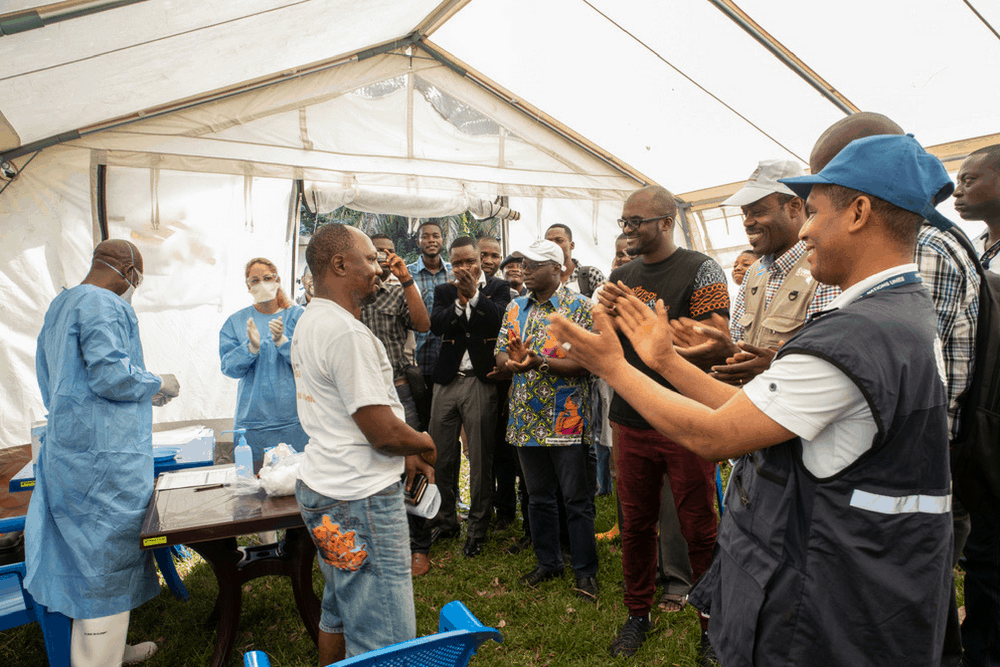
Congolese health workers celebrate as the first frontline worker is vaccinated in Bikoro, Democratic Republic of Congo (DRC).
The Ministry of Health in the DRC officially declared the Ebola epidemic over on 24 July. MSF teams ran an emergency intervention in the Equateur Province from May to mid-July, supporting the Ministry of Health for the 38 confirmed patients. MSF teams also vaccinated 1,673 people at risk of contracting the virus.
Photo: MSF/Louise Annaud
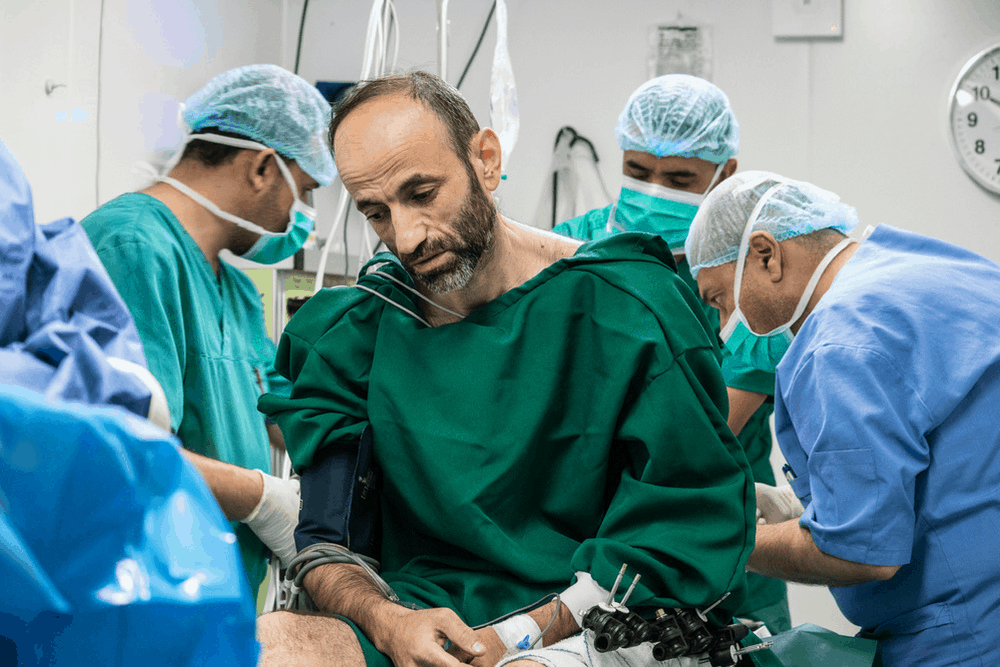
Nashwan, 42, is prepared for surgery at MSF’s post-operative care facility in east Mosul, Iraq.
Iraqi forces recaptured the city of Mosul from the so-called Islamic State in July 2017. But a year later, the situation is still critical and tremendous needs remain. Over the past year, MSF’s team has witnessed a shift from war-related wounds to mine injuries, and more recently, medical issues related to poor living conditions as more people return to the city.
Photo: MSF/Sacha Myers
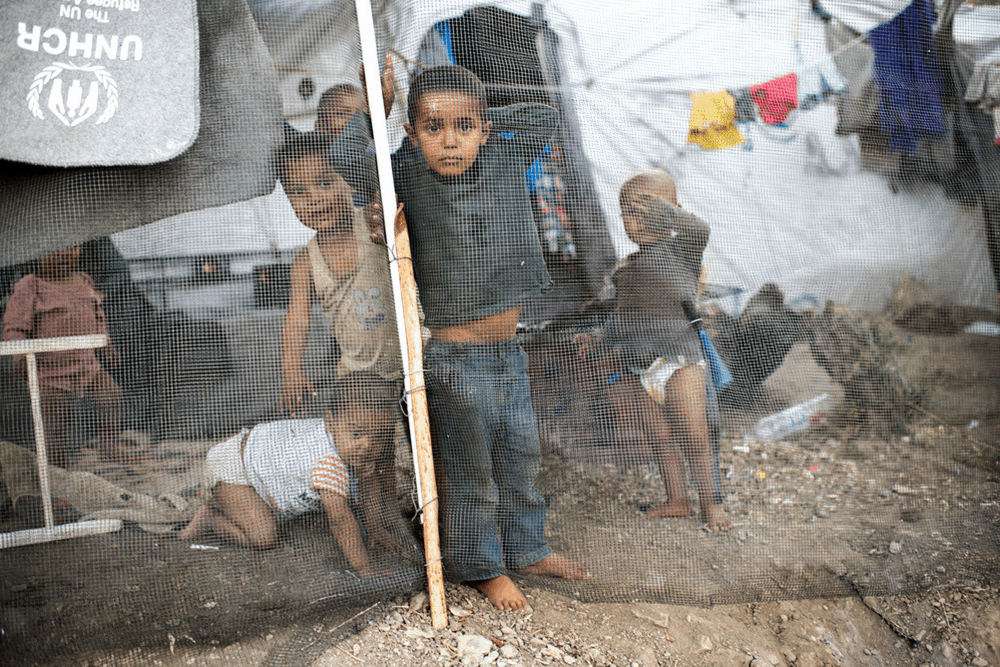
Young children trapped in Moria refugee camp in Lesbos, Greece.
People trying to reach Europe via Turkey and the Aegean Sea have been trapped for an indefinite period of time on islands in Greece as part of the EU-Turkey deal. In Lesbos’s Moria camp, there are currently more than 7,500 people in a space capable of holding 2,500 people. This overcrowding has resulted in regular clashes, incidents of sexual violence and a deteriorating state of mental health. MSF teams provide medical care and mental health support outside the camp and run a clinic for severe mental health cases in Mytilene, the capital of the island.
Photo: Robin Hammond/Witness Change
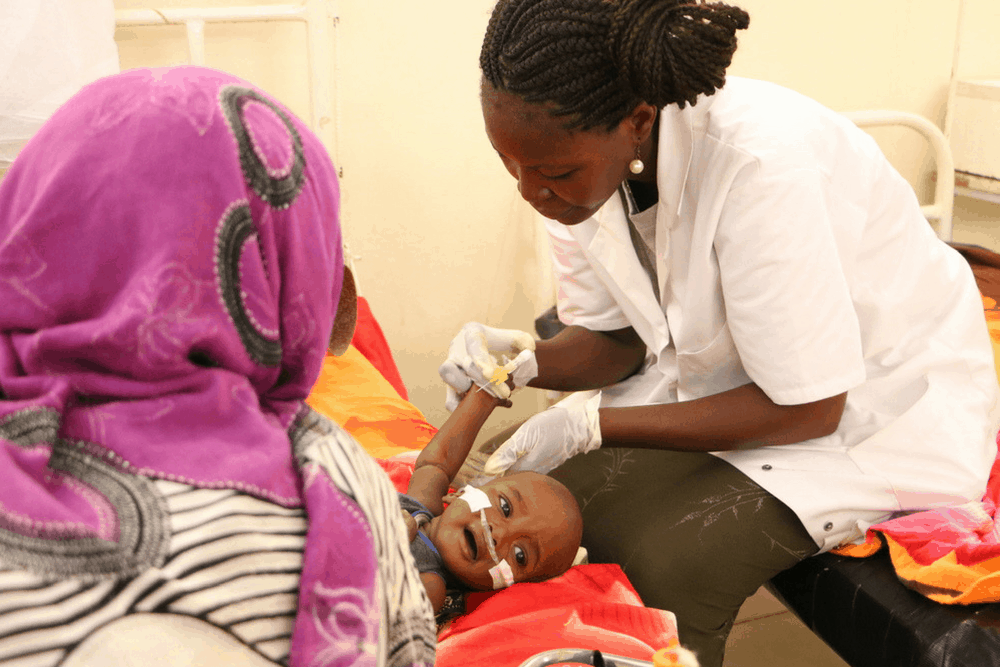
Eight-month-old Haroon is treated in the intensive care unit at the Am Timan Hospital in Chad.
From May to September each year, severe food insecurity plagues Chad and the Sahel region in Africa. In May alone, this recurrent crisis caused 325 malnourished children to be admitted to the MSF-run nutritional feeding centre in Am Timan. To tackle the nutritional crisis during its peak, MSF teams are supporting three health centres in Am Timan to screen and treat malnutrition.
Photo: MSF
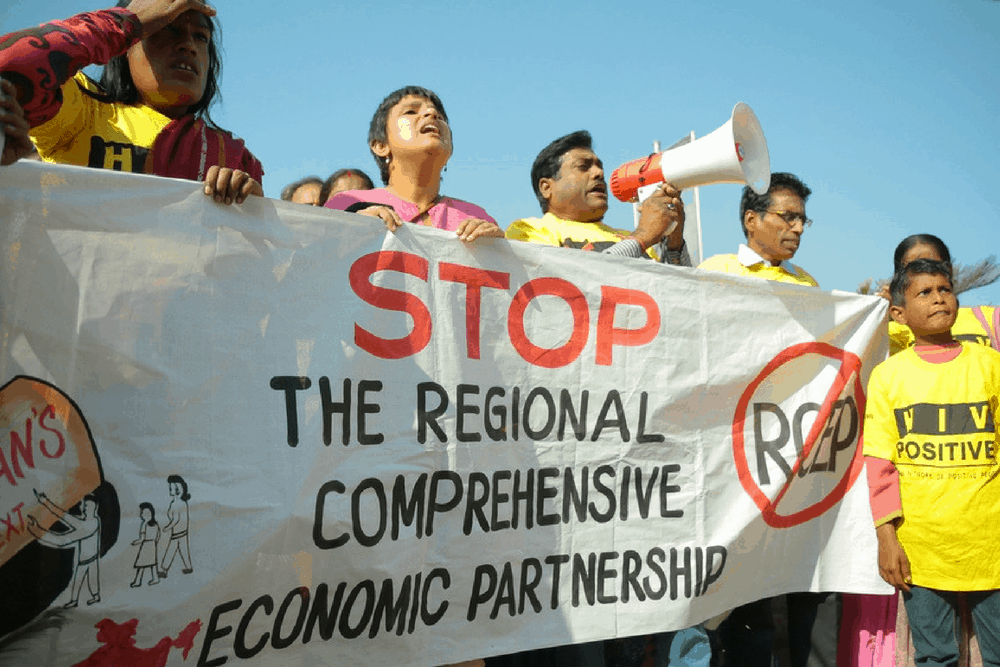
File photo of a civil society demonstration during the sixth round of negotiations for the Regional Comprehensive Economic Partnership (RCEP).
The 23rd round of negotiations of the RCEP were held in Bangkok earlier this month. MSF warned that the provisions proposed in this trade deal threaten to undermine access to price-lowering generic medicines and life-saving treatment for millions of people in the developing world.
Photo: Siddharth Singh
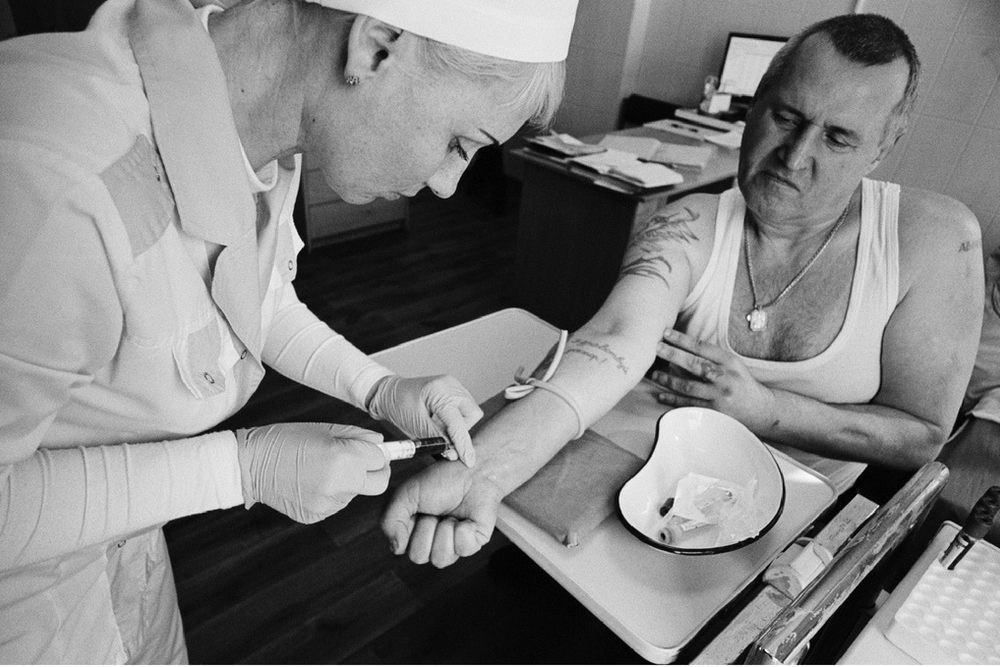
Andrii Konovalov, a hepatitis C patient, providing a blood specimen for a viral load test in Southern Ukraine’s Mykolaiv region.
28 July is observed as World Hepatitis Day every year. Globally, at least 71 million people have chronic hepatitis C. If left untreated, hepatitis C can lead to liver failure and liver cancer. Since 2015, MSF has provided treatment to over 6,000 people with hepatitis C in 11 countries.
Photo: Aleksandr Glyadyelov/MSF












